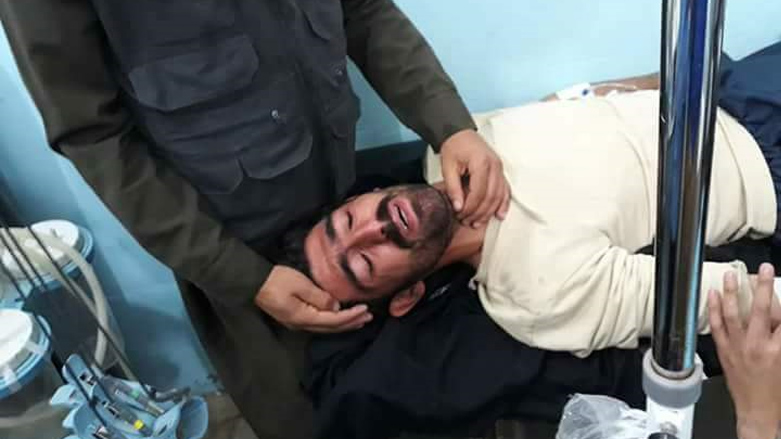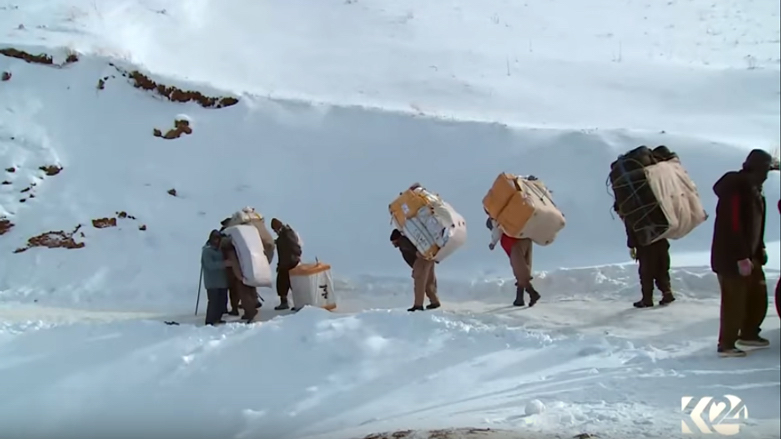Iranian mine injures Kurdish Kulbar 'courier'

ERBIL (Kurdistan 24) – An Iranian landmine in the border area with the Kurdistan Region exploded on Sunday, wounding a 26-year-old Kurdish man who works as a Kulbar.
“Last night, the Kurdish Kulbar was brought to our hospital and was treated accordingly,” Mohammed Jabar, Assistant Director of the Emergency Hospital of Choman, said in an interview with Kurdistan 24.
Choman is a town in Erbil Province’s border district of the same name.
Hiwa Ali is from Mahabad, a city in the West Azerbaijan Province of Iran and part of Iranian Kurdistan (Rojhilat). He is one of many Kulbar, or border couriers, who smuggle small amounts of goods across the border into the Kurdistan Region.
Though illegal according to Iranian laws, it is a local practice that has long since been accepted as normal in the economically undeveloped areas where many residents depend on it for their livelihoods.
Iranian border guards regularly shoot crossing Kulbars and have killed 16 in 2018 alone.
Iranian laws dictate that border guards can fire their weapon only if they believe the trespasser is armed and dangerous and just after observing the following procedures: first, giving an oral warning; second, shooting into the air; and third, if they must fire, targeting the lower body.
Mines are another tool the Islamic Republic of Iran uses to control its border.
And on Sunday it was one of these mines that exploded under Ali when crossing the border into the Kurdistan Region.
After the explosion, a local Kurdish man from the area saw Ali then took him to a local clinic in the border town of Haji Omeran. Afterward, Ali was taken to Choman Hospital, 20 Kilometers away, for further medical care.
According to the Hospital, Ali lost three toes on his right foot, but his condition has stabilized, and they are monitoring him closely.
Many citizens in impoverished Rojhilat who find no other means to earn a living risk criminal charges, their safety, and their lives making the trips on a regular basis. They routinely spend days climbing near-impassable paths while carrying goods such as tobacco, tires, and tea.
Most make as little as $10 a day for their efforts.
Editing by Karzan Sulaivany

